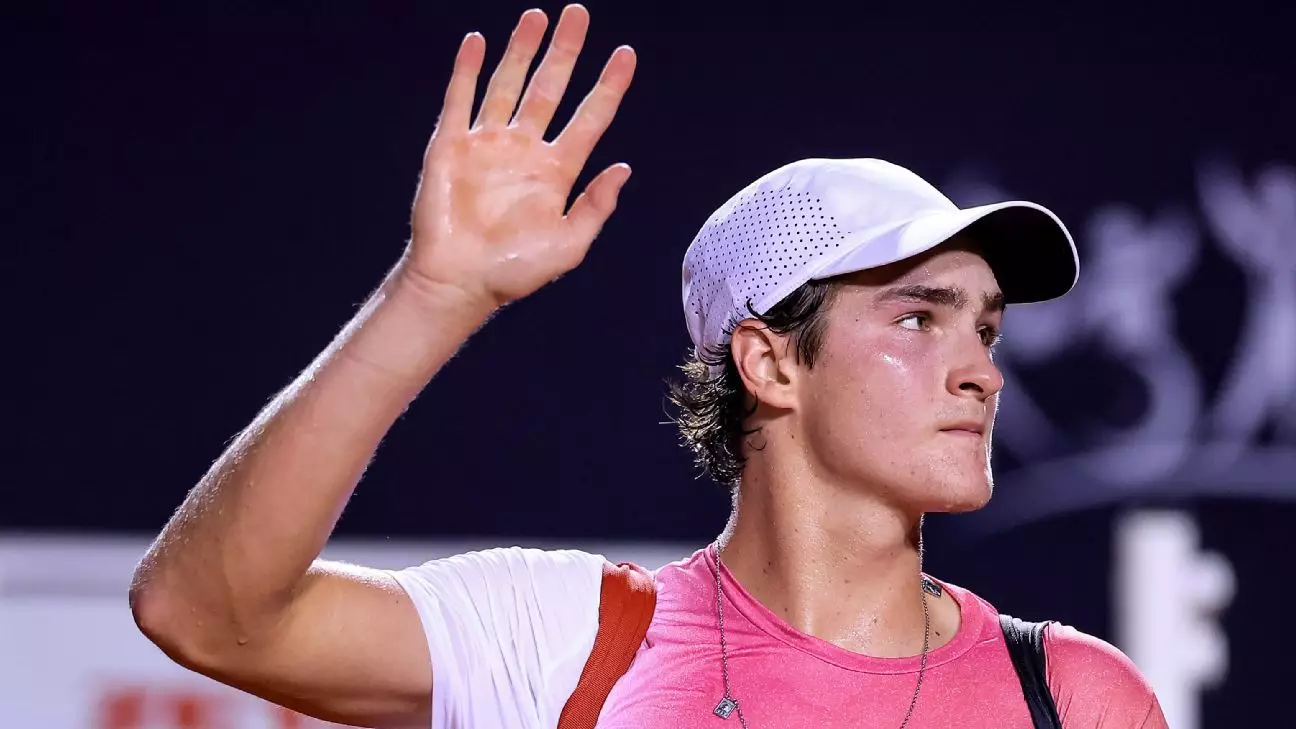João Fonseca, the 18-year-old tennis prodigy from Brazil, faced a bitter disappointment at the Rio Open, just two days after celebrating his first ATP title. In an unexpected first-round defeat against France’s Alexandre Muller, ranked No. 60 in the world, Fonseca’s performance left much to be desired. Losing with a score of 6-1, 7-6 (4), the young star racked up an astounding 34 unforced errors, casting doubt on his readiness to compete at such a high level so soon after his victory in Buenos Aires.
The match revealed cracks in Fonseca’s stamina and mental fortitude. Despite the encouragement from a passionate home crowd of approximately 5,000 fans, he appeared fatigued, suggesting that perhaps the euphoria of his recent win had taken a toll on his preparation for the event. This was particularly troubling considering that only a few days earlier, he had achieved a significant milestone by winning the Argentina Open, marking him as the first player born in 2006 or later to secure an ATP singles title.
Sophomore Year Reflections
For Fonseca, this year’s Rio Open represented a stark juxtaposition to the previous year, when he reached the tournament’s quarterfinals. After finishing off 2024 by taking the prestigious Next Gen ATP Finals in December, expectations for the young player were soaring. His meteoric rise in the ATP rankings, climbing 31 spots to No. 68 after his victory in Argentina, painted a picture of a budding star ready to cement his legacy.
Yet, the reality is often more complex than the narrative suggests. The pressure of sustained high performance can be overwhelming for young athletes. In the first set against Muller, Fonseca struggled with consistency, unable to find his rhythm and too frequently gifting points through careless errors. As a result, he could not leverage the momentum he had built just days earlier.
The Importance of Resilience
Muller’s analysis of the match offered some insights into Fonseca’s competitive psyche. He noted his own journey through moments of tension and realizing the importance of capitalizing on opportunities. “I didn’t take my chances to break in the second set, but he was also rising to the occasion,” Muller reflected after securing his win. This underscores the lesson that tennis is as much about seizing critical moments as it is about physical ability.
For Fonseca, the experience serves as an important learning opportunity. Recovery from setbacks is crucial for any athlete, particularly at such a young age. The narrative of a rising star is not solely defined by victories—it involves honing resilience in the face of unexpected challenges. As he processes this loss, Fonseca would do well to remember that mastering the mental game is as vital as perfecting his strokes.
While the disappointment at the Rio Open may sting, it is part of the intricate journey of an athlete’s development. For João Fonseca, the focus must shift from immediate results to long-term growth. The lessons learned on and off the court will not only shape his future but may also fuel the burning desire to return stronger.


Leave a Reply